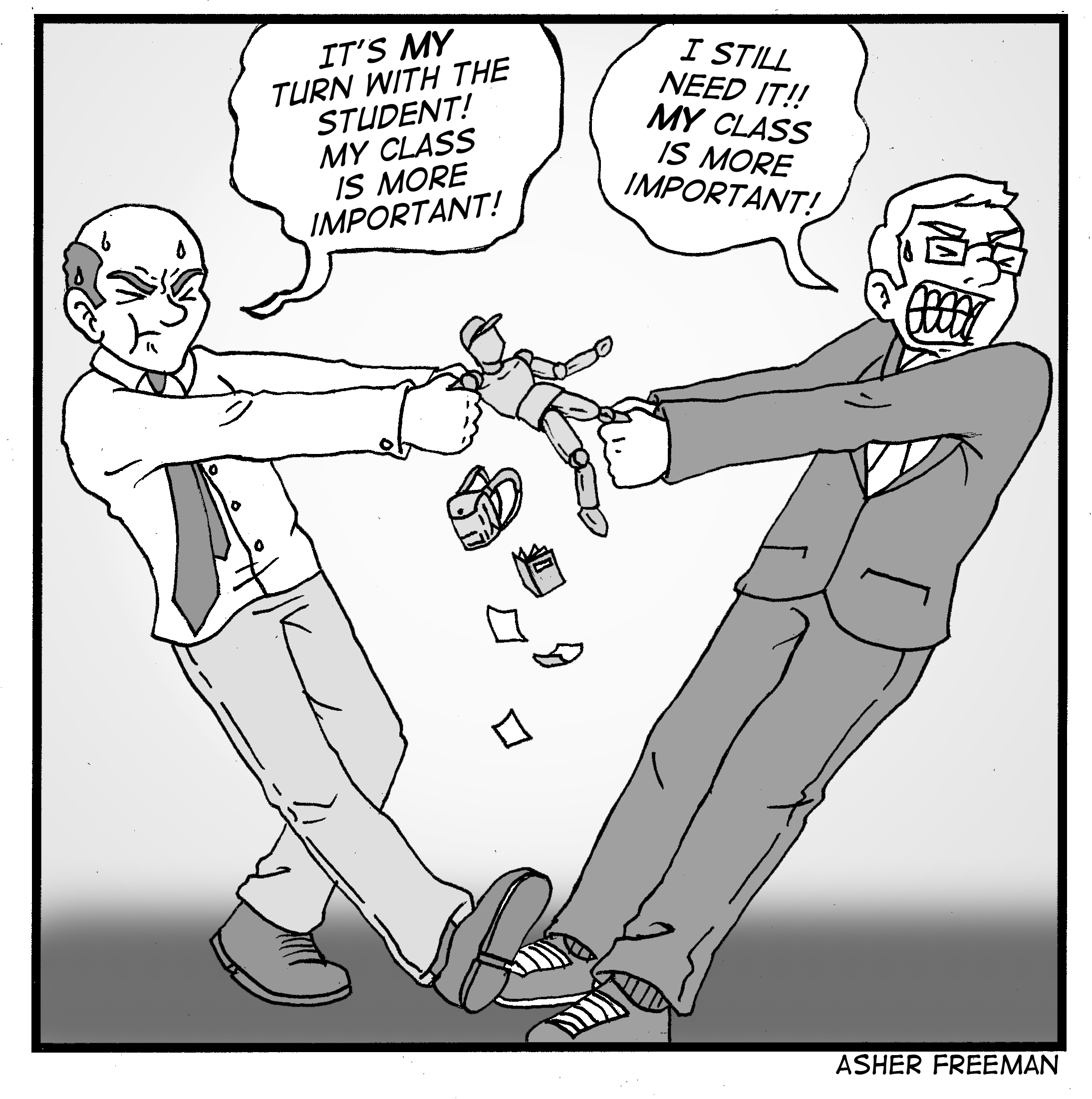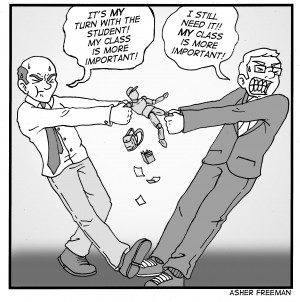Several times on any given day, students begin to nervously eye their watches, slide their phones from their pockets or glance at hallways where other students are roaming. All this in anticipation of the moment when an instructor finishes a sentence with just the right inflection that signals class is finally over.
It’s an anxious two to three minutes that consist of an even longer train of thought in students’ minds. Will my professor mind if I leave right now? Is class technically over?
But the end of class is just that, a technicality. That time marked on a student’s detailed schedule implies a strict adherence to a window of time, but not every class is led this way.
During secondary education, most students become familiar with a bell system that alerts the entire building that a period has ended. But those days are gone and in college the burden falls on students to often remind their instructors their time is up.
It seems rude sometimes, slowly zipping up a backpack five minutes before class should let out, but without these small hints some professors won’t stop.
But why should students rush their professors to make their final point or discuss their final slide? Students are supposed to be in school to gain knowledge from these experienced and distinguished minds. Professors have earned a degree of respect that should not be dismissed because of some technicality such as the end of a 50-minute learning window.
However, the problem is that a professor who is known to give last minute details about the next week’s homework assignment three minutes after class is over disrupts the window of time their colleagues share with the same students.
Maybe on a campus where everyone was at a two- or three-minute walking distance from their next class, these small discrepancies could be overlooked. But at an institution like Baylor, where the walk from Waco Hall to School of Engineering and Computer Science is about half a mile and about an 11 minute walk, according to the Google Maps, getting out of class on time is essential.
As a courtesy to the other teachers, professors should be mindful of the effect they have on a student’s ability to arrive on time. But moreover, professors should have some sympathy for the delicate balance that is being a college student.
Students spend a great deal of time planning their schedules before registration, calculating the time it takes to get to class, then the time it takes to travel between classes. Some also factor in the time it takes to leave class to make it to their place of employment.
For the most part, students don’t want to come across disrespectful, even if it is only because their grades hang in the balance. But it is an uncomfortable position for students, deciding which professor’s time is more valuable. Do you choose the one who is lecturing past their given time or the one who is waiting for you in the next class?
Then, there are some professors who penalize students for being late. Students with professors such as these know how crucial it is to make it to class on time.
This doesn’t have to be a problem that students solve alone. Instructors should come to class with the intention of disseminating information in their given window of time over the course of the semester. What doesn’t get covered in one class can be covered in the next class at the professor’s leisure. But what a student misses in one class because they were tardy cannot as easily be corrected.
There are a lot of things college students are struggling to learn before entering the real word and time management is certainly one of them. And with some already experts in the fine art of procrastination, these minutes between classes can feel like just another opportunity to fall behind. Help a student out. End class on time.







